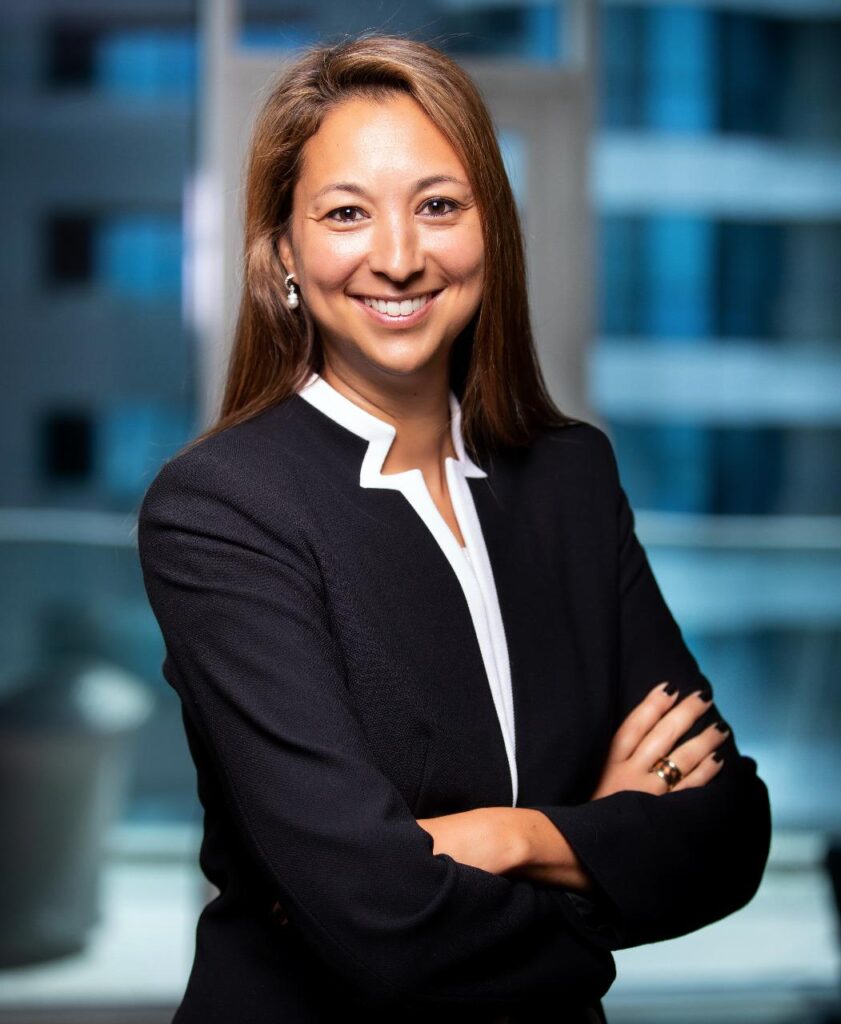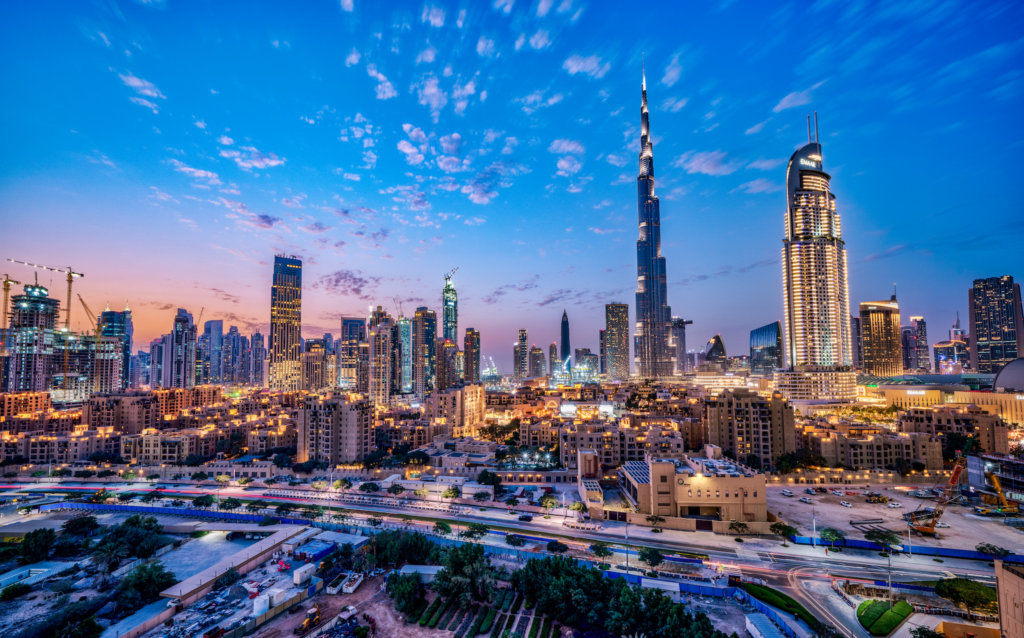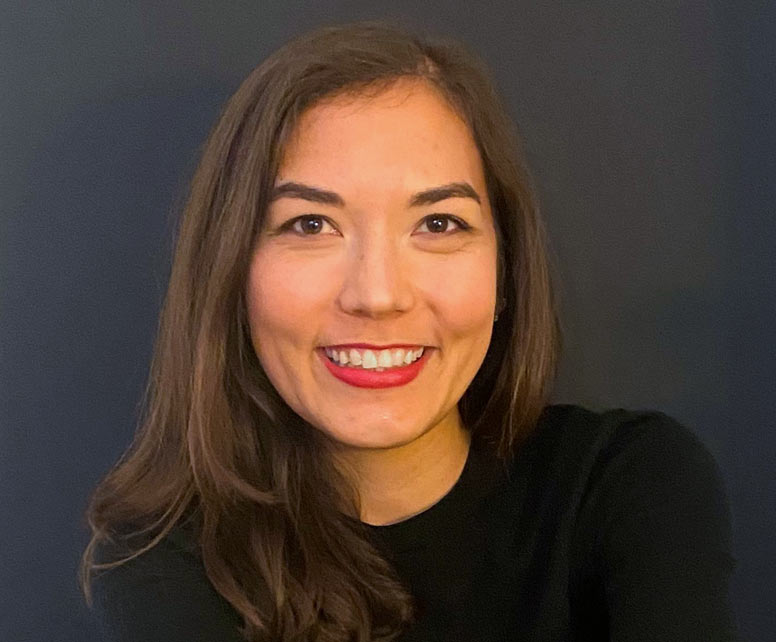Intercultural management
Exciting insights into intercultural management and personnel development at Siemens – an interview with Silvia Oppus
My guest today is Silvia Oppus, Head of Human Resources for the Middle East region at Siemens. We talk about her exciting international working life, in particular the topics of intercultural management and personnel development.
In ihrer Rolle bei Siemens verantwortet Silvia Oppus acht Länder (Vereinigte Arabische Emirate, Qatar, Kuwait, Oman, Bahrain, Ägypten, Pakistan und Saudi Arabien) in der Region Middle East mit insgesamt 2200 Mitarbeiter:innen. Silvias Team besteht aus 23 Mitarbeiter:innen, die über diese Länder verteilt sind, wobei die meisten in Dubai und Abu Dhabi ansässig sind. Die Zusammenarbeit erfolgt überwiegend hybrid über MS Teams, E-Mails und gelegentliche persönliche Treffen, z.B. für strategische Themen. Die gemeinsame Business-Sprache im Team ist in Englisch.

The topics at a glance
✔ How can we improve effective teamwork?
✔ How can we reduce poor communication, misinterpretations and a lack of trust?
✔ How do I need to develop as a manager in an intercultural environment?
✔ How can I utilise diversity in the team for innovation and collaboration in the company.
✔ How can I promote the integration of new international team members.
✔ How can awareness of intercultural issues be promoted in international teams?
Reading time: 6 minutes
Challenges in intercultural management
In your opinion, what is the biggest challenge in intercultural management?
One of the biggest challenges for any organisation is getting teams and individuals to work together effectively.
A lot of time and money is often lost here due to poor communication, misinterpretations and a lack of trust. This can lead to an endless spiral if different cultures do not understand each other.

How do you approach this topic?
In my opinion, you have to start with the roles and responsibilities. If this is not clearly regulated, it harbours a lot of potential for conflict within the company. In my experience, a lot gets lost and misunderstood in verbal communication. I would therefore recommend every manager, regardless of the culture, to record goals and expectations in writing so that they can be asked about them. It is also important to take time for team retrospectives to identify potential for improvement together, but also to celebrate successes.
Personality analyses, for example with Strengthscope®, also play an important role for us. This allows us to work out the different strengths of the people in the team. Ultimately, it helps to develop a common language, regardless of different cultures. People can be supported individually in a strength-orientated way and also support each other better as a team.
How do you get everyone to contribute their diversity, perspectives and ideas to a co-creation process?
Here it is particularly important to build trust and create a safe space so that everyone has the confidence to share their ideas.
Intercultural management style
To what extent have you adapted your management style in your position in Dubai? Do cultural differences play a role in this?
Although I myself have a very international background with my Korean, Brazilian and German roots, I had a lot to learn when I came to Dubai from Germany.

For example, there are religions in which people are not allowed to shake hands, for example on birthdays or to greet each other. My colleagues pointed this out to me at the beginning. This also has nothing to do with gender, but is purely for religious reasons. As you don’t always have this in mind, colleagues put their hands crosswise on their chest in such situations and bow out of respect to make it clear that there is a different background to the fact that they are not shaking my hand. That was something completely new for me, for example.
In Dubai, we sometimes wear short things, like a skirt or a T-shirt. But when I have official appointments, I always wear long things. Five years ago, women in Saudi Arabia still had to wear a headscarf. It was also forbidden to wear jeans. Long traditional garments were permitted. But that has since changed. Saudi Arabia wants to attract a lot of talent and has therefore opened up more. You no longer have to wear a headscarf and jeans are now also possible. You realise that a lot is developing and changing in the countries. The nice thing about it is that many cultures work and live together respectfully.
When I came to Germany from Brazil at the age of 18, I was told by a colleague that she was uncomfortable with physical contact. It was normal for me to touch someone on the arm when talking. I didn’t even realise it consciously. Since then, I have adapted to this in my professional environment. However, as I am a person of the heart, I still find it difficult sometimes. I would say that in southern countries, gestures are used to emphasise different things during communication.
I once worked for a long time in Bangalore in India. There I realised how differently leadership tasks are perceived. The team leaders are more involved in team building in their free time. For example, they go to the cinema with the whole team at the weekend or invite their team to their home. Private meetings are part of the work culture here, unlike in Germany. It’s different again in Dubai, as many are not “at home” and don’t have their families there. Many friendships develop among colleagues here. In Dubai, however, I am not expected to invite the team to private parties. Nevertheless, you still have a close relationship with many colleagues outside of work.
Trotz kultureller Unterschiede ist es als Führungskraft wichtig, auf die persönlichen Bedürfnisse der Menschen situativ einzugehen. Manche brauchen mehr Aufmerksamkeit und Unterstützung als andere. Das ist sehr unterschiedlich und unabhängig von der Kultur.
Diversity in the team
You also meet regularly in person for workshops. To what extent does the diversity in the team have a positive effect here?
Diversity plays a major role for us in every respect, not just when it comes to culture. Diversity or variety comes from all areas. Be it origin, religion, age or even seniority and ways of thinking.
Utilising diversity is the key to innovation. There is no more diverse team than ours. In Dubai, talent comes from everywhere and my team is made up of people from different countries. That’s very nice!
And yet there is a common thread, and that is the Siemens culture. Even if everyone has a slightly different understanding of how to work, there is an overarching culture and it is called “Siemens”. This means that we don’t live in hierarchies, but information is exchanged freely. When I started 25 years ago, things were different. Unlike back then, information is now freely accessible to everyone. This means that everyone can participate and everyone is invited to act on their own initiative and be innovative. The working environment and issues are so complex today that managers can no longer manage them alone. Teams work agilely in ecosystems, independent of hierarchies and globally organised.

Anna Weidlich
Expert for intercultural communication and cooperation (M.A.)
Do you have any questions about our offer?
Arrange a free consultation now.
Positive influence of diversity on Siemens’ corporate culture
What positive effects does diversity generally have on team dynamics and the corporate culture at Siemens?
A company cannot survive without diversity, especially in a global environment. Our talent comes from everywhere, and we develop talent from everywhere. Our markets are also global. We have team members in the Middle East who support us from Germany or the UK, for example. Virtual collaboration makes this possible today. Covid has greatly accelerated the transformation of the world of work and the flexibilisation of the workplace.
But we still have a long way to go when it comes to diversity. We only have a proportion of women of 13.2 per cent. We want to hire even more women here and also develop them into management positions. This is not easy for our industry, but even here in Saudi Arabia, women are just starting to enter the labour market more and more.
How do you integrate new team members, even if they work from a different location?
We attach great importance to onboarding because it is the cornerstone for a successful start in a new position. The first 90 days in particular are often crucial. At Siemens, we have a very heterogeneous landscape in a multinational environment with complex processes and systems. It’s not easy to find your way around here. That’s why we have established a good mix of digital and personal onboarding. Every new employee is assigned a “buddy” from the team. The manager plays an important role and we attach great importance to small gifts such as a bouquet of flowers on the first day of work. There is also a personal welcome session once a month with the CEO and myself in Dubai. As managers, it is important for us to act as role models, build trust from the outset and give new employees the opportunity to network with each other.
How does Siemens promote awareness of intercultural issues in international teams?
Siemens has an “Employee Assistant Programme” and offers numerous training courses on topics such as collaboration, resilience, mental health, communication and conflict resolution. Communication and conflict resolution play a major role and are offered as open virtual training for everyone.
Siemens expatriates receive intercultural training before they go abroad with their families.
We have also established an important platform in the United Arab Emirates for all managers in the region, which meets once a month. In addition to business topics, relevant communication and collaboration issues are also discussed here, such as virtual leadership, conducting difficult conversations and resilience.

Anna Weidlich
Expert for intercultural communication and cooperation (M.A.)
Anna Weidlich, founder of Interkult Training, is an experienced expert in intercultural communication and cooperation with international roots in Russia, Korea and Germany. With multilingual expertise and extensive experience abroad, she supports companies in international cooperation. She acquired her in-depth expertise through a three-year Master’s programme at Munich University of Applied Sciences.


